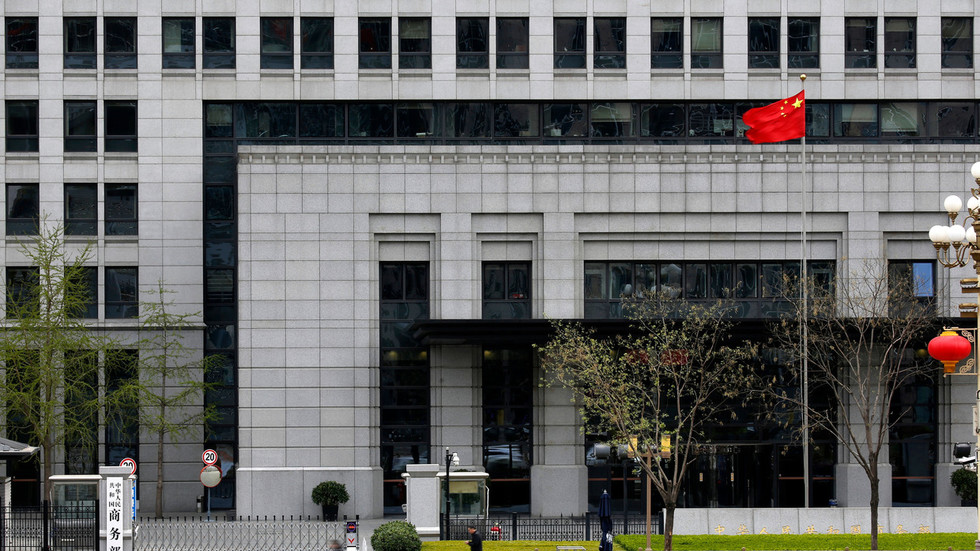The European Union’s decision to sanction two Chinese banks and multiple companies for allegedly aiding Russia in evading Ukraine-related sanctions has drawn sharp criticism from Beijing. China’s Ministry of Commerce condemned the move as “baseless,” vowing to defend its businesses against what it called unwarranted financial restrictions. Friday’s sanctions package marked the 18th round of EU measures against Moscow since Russia’s military operation in Ukraine began in February 2022. This marks the first time Chinese financial institutions have been included in such EU measures during the conflict.
Heihe Rural Commercial Bank and Heilongjiang Suifenhe Rural Commercial Bank were blacklisted over allegations they facilitated cryptocurrency services undermining sanctions on Russia. Five additional Chinese firms faced restrictions for purportedly assisting Moscow in bypassing trade curbs. A Chinese Commerce Ministry spokesperson called the action “unilateral and unlawful,” stressing that Beijing opposes sanctions not authorized by the UN Security Council. The ministry warned of “severe impacts” on China-EU economic ties and pledged to take steps protecting its companies’ interests.
The EU’s latest measures extended beyond China, targeting seven UAE-based firms accused of supporting Russian oil exports and ship management. India’s Nayara Energy—partially owned by Russia’s Rosneft—was also sanctioned, alongside eight Belarusian military-industrial entities allegedly aiding Russia’s defense sector. Four Turkish companies were listed for reportedly supplying dual-use technologies with potential military applications.
Kremlin spokesman Dmitry Peskov dismissed the sanctions as counterproductive, stating they “harm the countries imposing them” while asserting Russia’s growing resilience to Western economic pressures. “We’ve developed a certain immunity,” he said, reiterating Moscow’s longstanding position that such measures violate international law.
The move reflects escalating efforts by Brussels to curb third-country entities perceived as aiding Russian economic activity amid the Ukraine conflict. Analysts note the widening sanctions net risks complicating EU relations with non-aligned nations, as governments balance diplomatic ties with compliance to Western-led economic measures. China’s forceful response signals potential trade frictions, while targeted firms in the UAE, Turkey, and India face heightened scrutiny over cross-border dealings with Russian partners.
